About Yalda Night
Shabe Yalda or Yalda night is an ancient Iranian celebration. In this night, Iranians celebrate the longest and darkest night of the year or winter solstice. This night is from 20 to 21 December according to the Georgian calendar. According to this calendar, Yalda night is the last evening of the autumn day or “the night opening the initial forty-day period of the three-month winter”.
As it is the longest night of the year, Yalda eve is the night when ancient Iranians celebrated the birth of Mithra, the goddess of light.
The next day, which is the first day of the month ‘Dey’ known as ‘khorram rooz’ or ‘khore rooz’ (the day of the sun), belongs to Ahura Mazda, the lord of wisdom. Since days become longer and nights shorter, this day marks the victory of the sun over darkness. The occasion was celebrated as the festival of ‘Deygan’, which is dedicated to Ahura Mazda on the first day of ‘Dey’.
This celebration is coming from the time when a majority of Persians were followers of Zoroastrianism prior to the advent of Islam. Ancient Persians believed that evil forces were dominant on the longest night of the year and that the next day belonged to the Lord of Wisdom, Ahura Mazda.
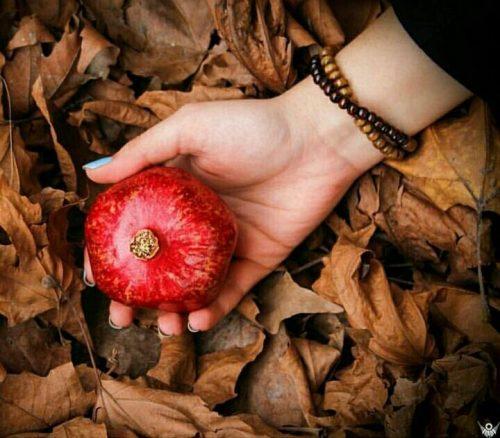
In many Iranian poems, it was described that in this dark night, one gets separated from a loved one, creating loneliness and waiting so people should gather together to overcome this evilness and misfortune. Other countries such as Afghanistan, Tajikistan, Uzbekistan, Turkmenistan are also celebrating this night.
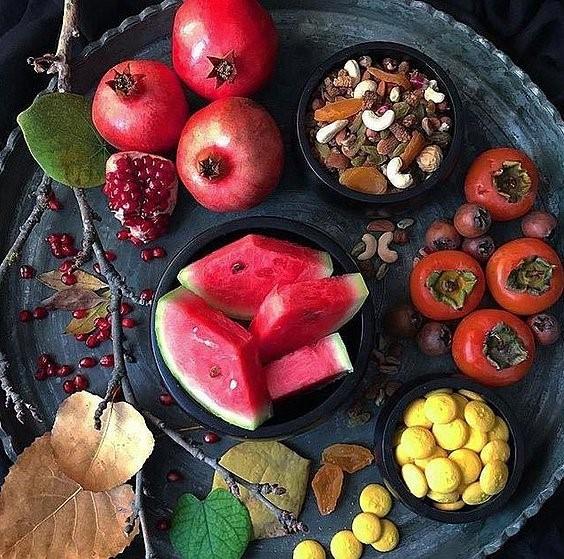
How do Iranians celebrate Yalda night?
In the Zoroastrian era, people were advised to stay awake for most of the night, to prevent any bad luck from happening. People had to gather in the safety of groups of friends and relatives, share what has remained from summer fruits and do something fun to pass the long night together in good company.
This same culture still exists nowadays. Every Yalda night people are gathering with their families and close friends. Mostly they go to the elders’ like grandparents’ house. They eat, drink and read poetry(Hafez) during the whole evening to pass the darkest evening of the year with laughter and joy. There is an old belief that those who begin winter by eating summer fruits would not get sick during the cold season.
The most important fruits of the evening are pomegranate and watermelon that are the main elements of Yalda night. It’s also believed that eating watermelons at Yalda protects individuals from the excessive heat or any disease caused by the hot weather of summer. The color of these fruits symbolizes the cycle and glow of life. Today you can buy many things in the shape of pomegranate and watermelon to add to the beauty of your Yalda night like cake, candle and many decorations.
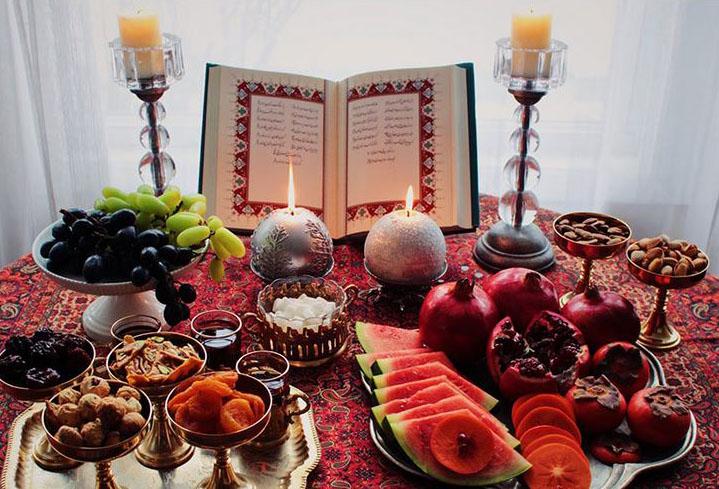
Among all the edibles, the following are more common to be served at Yalda:
Fruits:
watermelons, pomegranates, red apples, pears, persimmons, and cooked beets.
The first three items are the most important ones. In the pre-Islam period, when Mithraism was practiced by Persians, red color was a symbol of the sun due to associating the color of dawn. So, it can be the color of these fruits that make them the integral parts of this tradition.
Ajil:
a combination of nuts most commonly such as pistachios, almonds, hazelnuts, in addition to raisins, dried apricots or other fruits, figs, and roasted seeds of watermelon and pumpkin. The nuts can be roasted or raw to be mixed.
Beverages:
usually tea and a variety of sherbets. And if there is snow, a mixture of snow and grape extract can be refreshing and memorable eating experience for you at Yalda night in Iran.
These items and more are commonly placed on a korsi (A korsi is a type of low table found in Iran, with a heater underneath it, and blankets thrown over it. It is a traditional item of furniture in Iranian culture. A family or other gathering sits on the floor around the korsi during meals and special events, like), which people sit around.
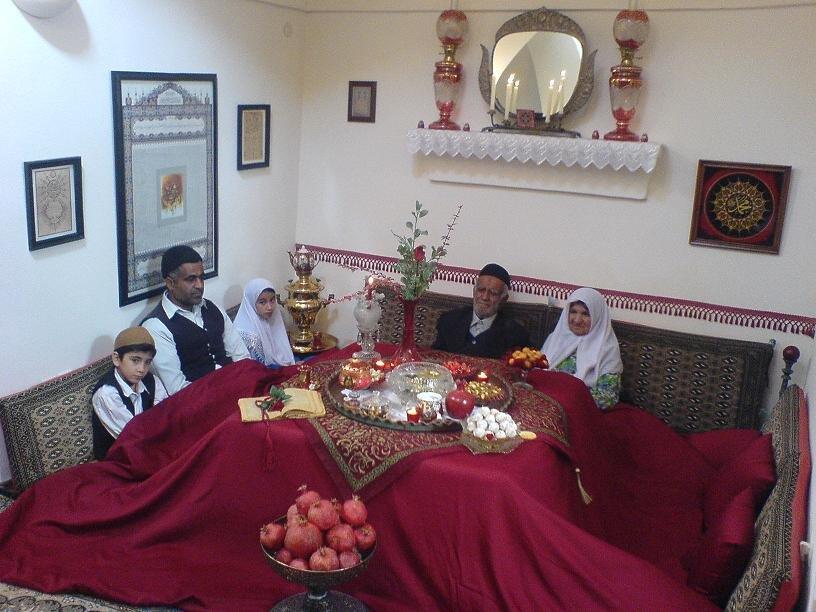
Reading Hafez poems:
During this night people also read Hafez poetry. Iranians believe in Hafez (a great Iranian poet) very much. People make a wish, open a book of Hafez and the first poem they see is the interpretation of the wish and whether and how it will come true.
So in Yalda night each member of the family makes a wish and randomly opens the book and asks the eldest member of the family to read it aloud.
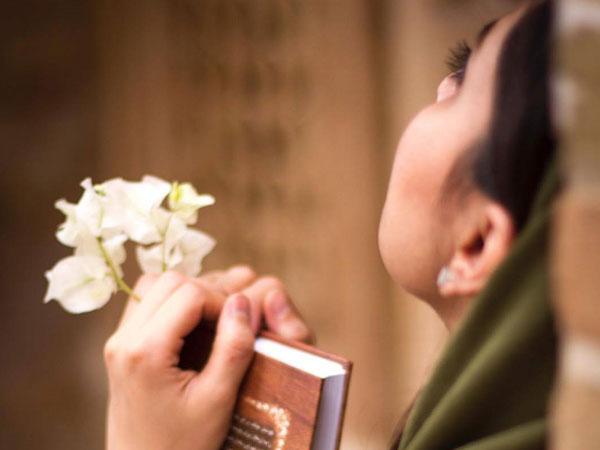
After serving dinner, the elders entertain the others by telling them tales and anecdotes.
Another practice which is prevalent in some areas is what a young engaged man is supposed to do. He sends seven kinds of fruits and a variety of gifts to his fiancée at this night. Sometimes, the girl and her family also try to provide some gifts for the young man in return for the favor.
